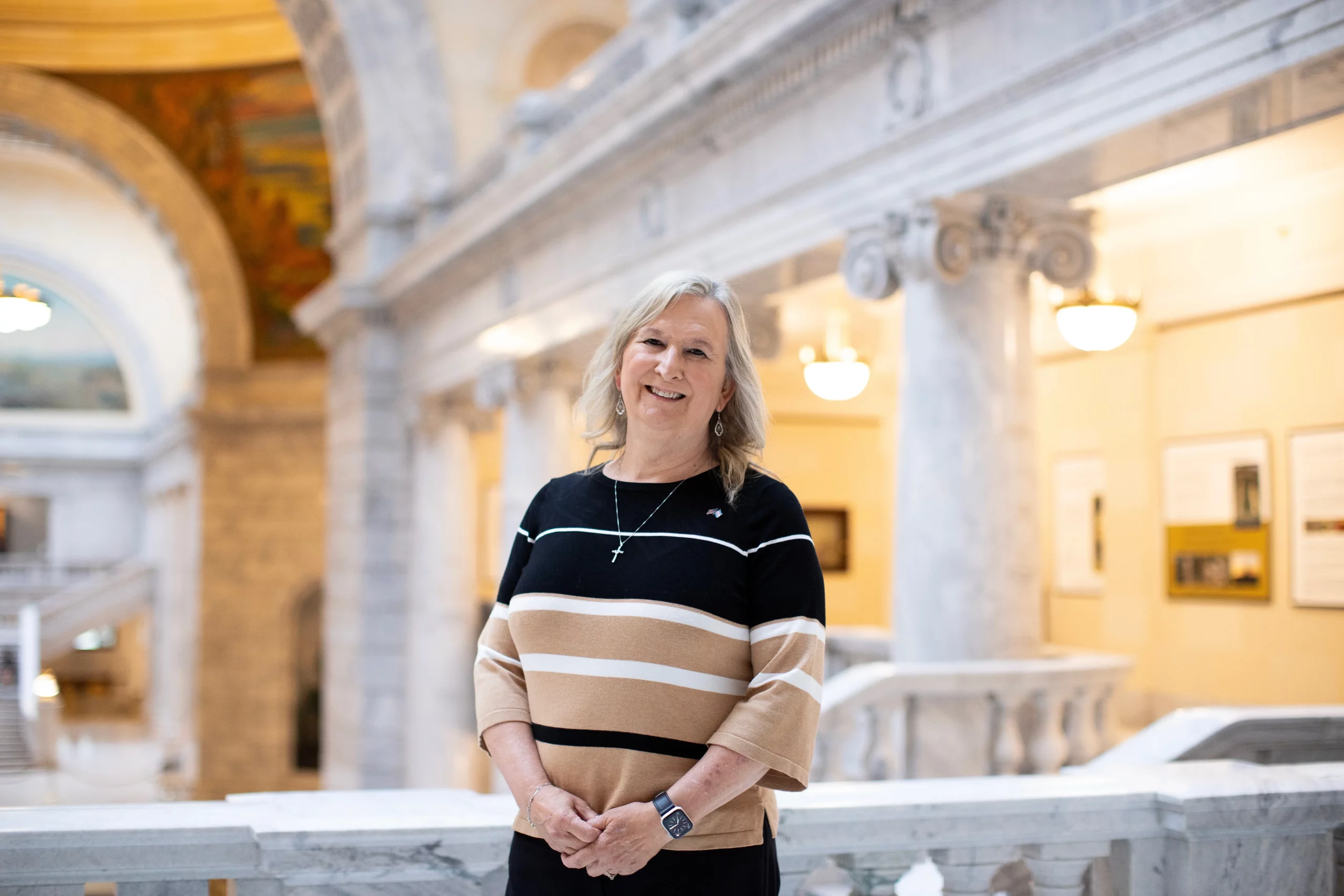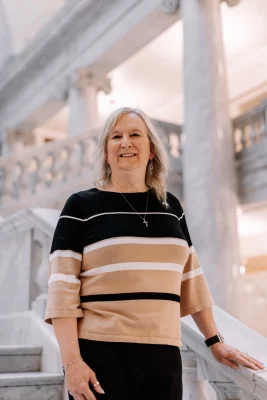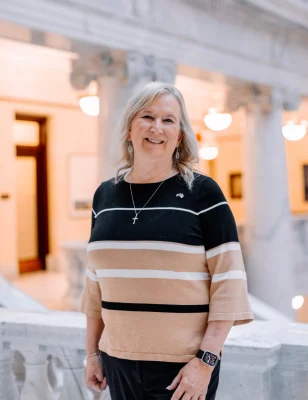
From Harm to Hope: Sue Robbins’ Education-Centered Advocacy
Activism, Outreach and Education
Sue Robbins is many things: activist and educator, retired veteran, mother and grandmother. Robbins also happens to be a woman who is transgender.
“We often say ‘transgender woman’ and then people only look at us as being transgender,” she says. “‘Transgender’ is on equal footing with every other piece of me … all those things make up the person who I am.”
Robbins’ diverse identities have guided her community work with the Utah Pride Center, the KSL Community Advisory Board, KRCL and the Huntsman Mental Health Institute.
Most visible is Robbins’ external advising role with Equality Utah, advocating for the local transgender community at the legislative level. “As a person who has the privilege of having time and connections, a network that allows me to get connected [to spaces] where I can have a voice … I need to step up and also reach back to others who are trying to have a voice,” Robbins says.
“Hope always has to be there or else you will not feel driven to do the things that you do in any endeavor in life.”
Robbins didn’t set out to gain visibility; she frames it as an unintended consequence of this line of work, which often blurs the personal and political. “You can’t work at the legislature and not be visible,” she says. “I have to strike a balance … How do I put myself out there so that I’m helping to educate while also making sure that I reach out to other members of the community and help bring them in?”

This balance is a tough one to achieve, especially as Robbins acknowledges the risks that can come with visibility. Self-care has been important for Robbins, who has seen firsthand the emotional impact of local anti-transgender legislation—impact that has been backed up by research suggesting that the existence of targeted legislation alone causes harm, regardless of whether or not the law passes. “Our bills end up [making] headlines more often than not, so we hear about every step and it takes away emotional energy to be constantly absorbing daily updates on these,” Robbins explains. “We need to be able to turn off a lot of that input to get the community to a healthy place, but we do need to understand the outcome.”
For Robbins, community has been the foundation upon which progress is built. “If we burn all our energy on the people on the extreme, then we have no energy left to help someone become an ally and we’re not going to win our rights without more allies,” Robbins says. “I feel we don’t need to combat extremism as much as we need to not let it suck the air out of the room for us.”

Before legislative interventions, Robbins shifts into a headspace that allows her to educate others, even if it is, at times, uncomfortable. “If we’re able to educate in a personal manner where we can connect with people and not push them away, then we start to win over people as allies,” Robbins says. Educating others can often be a burden saddled onto marginalized communities, many of whom are already struggling. Robbins acknowledges this while encouraging community members to do whatever they can. “Education brings knowledge, knowledge brings understanding and greater understanding brings social change,” she says. “If we aren’t educating people, then they’re left to believe whatever they want to believe.”
“‘Transgender’ is on equal footing with every other piece of me … all those things make up the person who I am.”
Robbins is hopeful that the legislature’s targeted attacks on the transgender community are reaching their end, saying that people want to move on to “real things.” “I don’t want to see people detransition because of safety [concerns],” Robbins says. “We need to be able to go out and live our lives to the fullest because that’s what we’re engaging for—we get to be ourselves and we get to be ourselves throughout society, not just in our living room.”
If community is the brick foundation for change, hope is the mortar. “Hope always has to be there or else you will not feel driven to do the things that you do in any endeavor in life,” Robbins says. “We have to be hopeful or else we lose everything we transitioned for.” Keep up with Sue Robbins on her website sueinut.com.
Read more from the LGBTQ+ Pride issue:
Friends Allies and Mentors: Creating LGBTQ+ Inclusive Schools
Please Bear with Me: Gay Tattoos by Cory Harris
